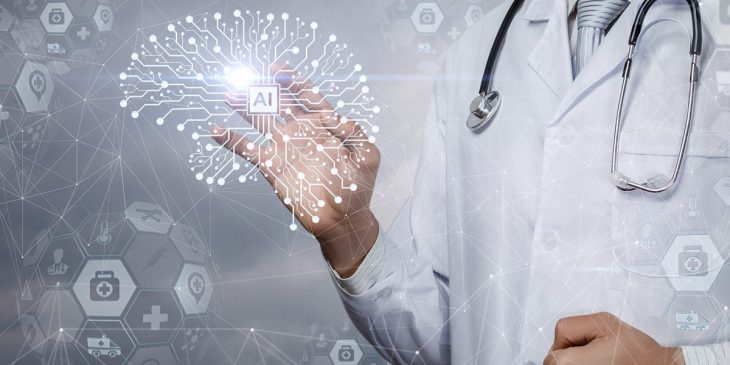Advances in artificial intelligence (AI) like ChatGPT could have a big impact on health care delivery, according to experts at UPMC. While these algorithms are in their infancy, engineers at UPMC are already exploring how this technology could help patients and their providers make better decisions about their care.
“Instead of searching through websites, imagine if you could log in to a platform and get answers to questions about your benefits plan or get help finding the right provider close to you,” said Chris Carmody, chief technology officer at UPMC. “My team is working on how we can bring this experience to our patients and Health Plan members by using AI like ChatGPT.”
While AI chatbots show potential for easily accessing some information, patients shouldn’t expect to use it for medical advice. Even as the technology progresses, AI won’t be able to replace your physician and care team when it comes to making decisions about your health.
“It’s unlikely that AI will ever replace our clinical staff,” Carmody said. “Instead, AI could become your care team’s copilot. For example, we’re exploring ways that AI could help connect patients to clinical trials. We’re working on a system that would read and analyze patients’ electronic medical records, then offer the care team a list of clinical trials they might qualify for. Then it’s up to the clinicians to discuss options with the patient.”
Engineers at UPMC are also developing ways to help clinicians provide personalized care to patients through a process called “digital twinning.”
“We call it a ‘digital twin’ because the technology allows clinicians to create a model of the patient with all the same demographics, health conditions and medications,” Carmody said. “With this model, the care team would be able to adjust medications or other treatments and see potential outcomes or side effects. It would allow clinicians to test new treatment plans before enacting it so they can determine the best way forward.”
In addition to these new solutions, Carmody said he and his team are looking into ways they can enhance solutions UPMC has been using for years, including telemedicine.
“We want to be a leader in extending care outside of the four walls of our hospitals or clinics,” Carmody said. “We’re continuing to enhance our telemedicine system and explore new ways for clinicians to keep an eye on patients’ conditions while they’re at home.”
UPMC is also testing technology that allows physicians to automatically document interactions with patients. A small cohort of clinicians is using technology from Abridge, a UPMC Enterprises portfolio company founded by Dr. Shiv Rao, who was a cardiologist at UPMC. Abridge “listens” to conversations between a patient and their health care provider and extracts the important points, like a change in medication or behavior, and creates notes for the patient and the electronic medical record. So far, both patients’ and clinicians’ reactions have been positive.
While these advancements are exciting, Carmody cautions it may be a while before any of these solutions are part of daily life in health care.
“Bringing this technology online takes time,” Carmody said. “The security and privacy of our patients’ and members’ information is our top priority. We’ll roll out a solution only when we’re confident that it can be used safely, and our clinicians and patients get accurate, helpful, secure information every time.”
For more information: mediarelations@upmc.edu









